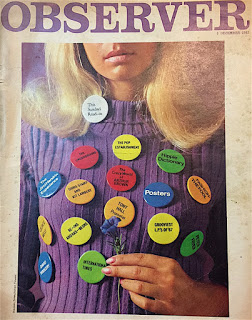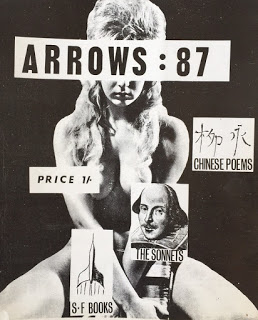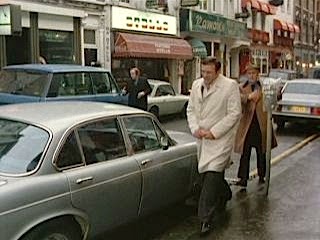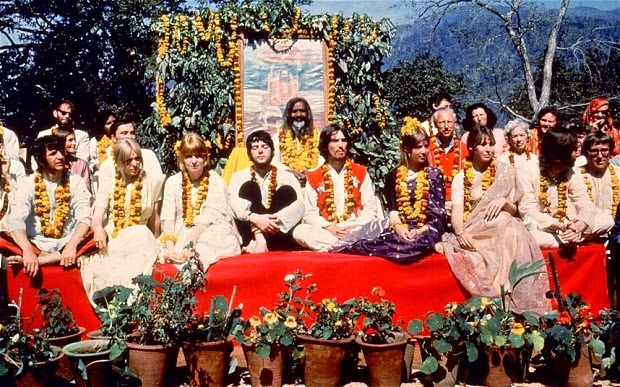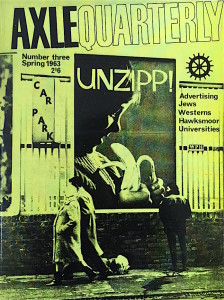 Found in the short-lived early 1960s London cultural magazine Axle Quarterly (Spring 1963) in their column of complaints , rants and broadsides (‘Axle grindings’) this mild attack on the British satirical magazine Private Eye (still going strong with a circulation of 225,000). Axle is almost forgotten, it is occasionally seen being traded for modest sums on eBay, abebooks etc., It survived for 4 issues – contributors included Gavin Millar, Paul R. Joyce, David Benedictus, Michael Wolfers, Paul Overy, Roger Beardwood, Mark Beeson, Ray Gosling, Simon Raven, Tony Tanner, Richard Boston, Melvyn Bragg and Yvor Winters. This piece was anonymous.
Found in the short-lived early 1960s London cultural magazine Axle Quarterly (Spring 1963) in their column of complaints , rants and broadsides (‘Axle grindings’) this mild attack on the British satirical magazine Private Eye (still going strong with a circulation of 225,000). Axle is almost forgotten, it is occasionally seen being traded for modest sums on eBay, abebooks etc., It survived for 4 issues – contributors included Gavin Millar, Paul R. Joyce, David Benedictus, Michael Wolfers, Paul Overy, Roger Beardwood, Mark Beeson, Ray Gosling, Simon Raven, Tony Tanner, Richard Boston, Melvyn Bragg and Yvor Winters. This piece was anonymous.
Millions can’t be wrong aided by The Observer’s unerring flair for pursuing fads of its own creation, Private Eye’s achievement of a 65,000 circulation in just over a year is an interesting phenomenon. This is a figure comparable to that which, say, The Spectator has had to build up gradually over many decades. That Was The Week That Was has been even more successful. It is estimated that it is watched by approximately 11 and a half million people, or nearly a quarter of the population.
First of all why has Private Eye been so successful? It’s easy to read, of course, or rather, easy to skip through. Few read the extended written pieces like Mr. Logue’s boring True Stories. And what most people do read requires about as much effort as a Daily Express cartoon. It’s funnier, and cleverer, and more sophisticated, but all it demands is that one has skimmed the headlines and watched TV occasionally. It doesn’t require any mental effort to take it in (although it may stimulate it).

